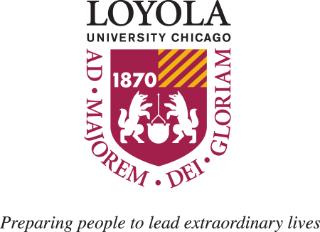Continuing Education
Loyola University Chicago is a licensed CEU provider through the Illinois Department of Professional and Financial Regulation. Our CEU programs, both online and in person, help you stay up to date on the current best practices and cutting-edge theories in behavioral health. Leading experts in the field develop each course, and courses are vetted for compliance.
Continuing education hours are required and necessary for a social worker’s career. Not only to keep your license up-to-date, but so you can provide your clients with updated and accurate care. Now you can get the continuing education you need to be well-informed on new treatment developments and strategies, plus build your career through a convenient and affordable way that’s adaptable to your personal and professional needs.
Fall 2024 Offerings
The Fall 2024 Online Group Work Series
- September 20: Group Work Essentials: 6 CEU's: 9:30am-4:30pm: Greg Tully, MSW, PhD
- October 18: Working with Grief and Loss in Groups: 3 CEU's: 1:00-4:00pm: Kris Drumm, LCSW, ACHT
- November 1: Using Activities Effectively in Groups: 3 CEU's: 1:00-4:00pm: Christian Itin, PhD
- November 2: Adventure-Based Group Work: An Experiential Introduction: IN PERSON: Heller Nature Center, Highland Park: 4 CEU's 9:00am-1:00pm: Barney Straus, LCSW, LICSW
- November 8: Strategies for Leading Online Groups: 3 CEU's: 1:00-4:00pm: Sera Godfrey Kaplan, LICSW
- November 15: Group Work Strategies for Working Effectively with Teams, Volunteers, and Committees: 3 CEU's: 1:00-4:00pm: Marci Meyer Eisen, MSW, ACC
- November 22: Effective Group Work with Diverse LatinX Communities: 3 CEU's: 1:00-4:00pm: Mauricio Cifuentes, PhD, LCSW, JD
2nd Annual Latinx Conference on Problem Gambling: Friday, September 27, 2024
Join us for the 2nd Annual Latinx Conference on Problem Gambling, a pivotal event dedicated to connecting, informing, and empowering our community. Held on September 27th in Chicago, this conference is designed to foster open communication between the underserved Latinx population and mental health professionals who can assist with problem gambling.
Event Highlights:
-
Community Connection: An opportunity for providers and community members to engage in meaningful dialogue about problem gambling and its impact on individuals and families within the Latinx community
-
Resource Awareness: Discover and share resources available for those affected by problem gambling, ensuring that help is accessible and well-known within the community
-
Educational Sessions: Covering crucial topics such as
-
Research on Youth Gambling: Focus on gambling trends among Latinx youth and effective prevention strategies.
-
Prevention Options: Discussing proactive measures to prevent problem gambling.
-
Community Relations: Strengthening ties and improving support networks within the Latinx community.
-
Stigma and Mental Health: Addressing the stigma surrounding mental health issues and promoting a culture of understanding and support.
-
This event is ideal for counselors, social workers, and other providers working with the Latinx community, as well as community members interested in understanding and mitigating the impact of problem gambling.
"What's the Point?": The Importance of Integrating Attachment Theory for Suicide Prevention and Intervention for our Thriving Youth: Shannon Dunn, PhD, LCSW, CRADC: Wednesday, October 9: 1:00-4:00pm: ONLINE: 3 CEU's
This online presentation explores suicide prevention and intervention strategies using the framework of Attachment Theory. Participants will gain insights into how attachment styles influence mental health and suicide risk, and learn evidence-based approaches to address these challenges. By integrating Attachment Theory with practical intervention techniques, this course aims to equip mental health professionals, counselors, and educators with a deeper understanding of the relational factors that contribute to suicidal behavior among diverse populations. Key learning objectives include identifying attachment-related risk factors, applying attachment-based interventions, and enhancing empathetic engagement with individuals at risk. Additionally, the course emphasizes the importance of self-care and wellness among clinicians, providing strategies to maintain personal resilience and prevent burnout while supporting others. Join us to develop a nuanced approach to suicide prevention that fosters resilience and supports effective, compassionate care.
Learning Objectives:
As a result of attending this presentation, audience members will be able to:
1) Identify suicide risks, including isolation, loneliness, and shame, among various diverse populations, including youth.
2) Understand how clinicians can focus on effectively reducing suicidal risk by applying Attachment Theory principles to their clinical work with youth who are at risk for suicide.
3) Analyze unique suicide risks and interventions among people who have been diagnosed with DSM-5 mental illnesses.
4) Create awareness of legal documentation in clinical work with people who live with suicidal risks.
5) Create self-care and wellness goals for both clinical youth and clinicians who deliver mental health support and intervention.
Ethical Considerations and Decisions in Community Practice: Thursday, October 31: Padraic Stanley, MSW, LCSW: 1:00-4:00pm: ONLINE: 3 CEU's
This training will discuss the application of the NASW Code of Ethics and Dolgoff’s ethical decision-making framework in the context of community interprofessional practice. Participants will discuss both common and unique ethical challenges present through various community practices on the micro and mezzo levels. Participants will be encouraged to bring their own ethical dilemmas (past and current) to work though, as well as will have the opportunity to debate and practice ethical decision making in small groups in response to case studies.
Objectives: By the end of this training, participants will…
- Identify strategies to make ethical decisions in occasions when the NASW code of ethics is not clear
- Strengthen their ability to make ethical decisions in times of uncertainty and times of necessity
- Explore the dynamics of power and privilege in topics of ethics and safety
- Analyze the scope of ethics in day-to-day social work practice
Beyond the Buzzwords: Culturally Competent Communication: Thursday, November 14: Binita Donohue, MSW, LCSW: 9:30am-12:30pm: ONLINE
Through case studies, personal reflection, and group discussion, this seminar will explore the patterned diversity scripts in our individual lives and how those experiences play out in the roles we occupy as individuals and within the organization. Attention will also be given to how individual self-care and self-responsibility can foster institutional self-care.
This seminar will:
1) explore the consequences of cross-cultural miscommunication and conflict
2) consider how diversity-based incidents become entrenched institutional narratives about diversity
3) develop processes that can bring clarity and healing to our lives and institutions.
Attendees will examine the impact of their own experiences on professional relationships and client and collaborative practice.
Please contact Caroline Gosselin at cgosselin@luc.edu for more information
Cancellation Policy:
Participants must cancel prior to five business days of the workshop date in order to receive a refund.



